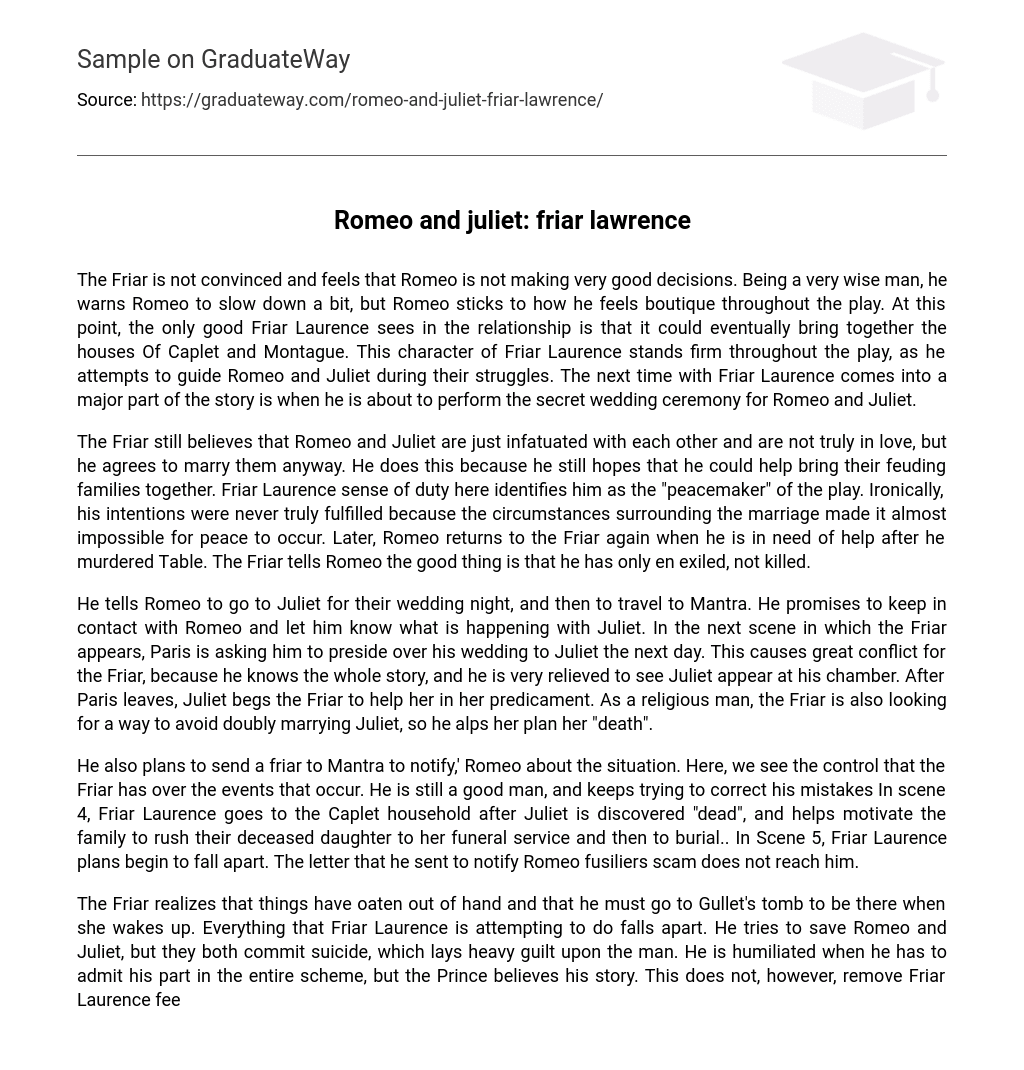The Friar remains unconvinced and believes that Romeo is not making sound decisions. Being a wise man, he cautions Romeo to exercise caution, but Romeo remains steadfast in his emotions throughout the play. At this juncture, Friar Laurence only sees potential good in the relationship as it could potentially reconcile the feuding Capulet and Montague families. This characterization of Friar Laurence remains consistent throughout the play, as he endeavors to guide Romeo and Juliet through their struggles. The next significant role of Friar Laurence occurs when he is about to conduct the clandestine wedding ceremony for Romeo and Juliet.
The Friar maintains his belief that Romeo and Juliet are merely infatuated with each other and not truly in love, yet he agrees to marry them regardless. He does so in the hope of fostering reconciliation between their warring families. This sense of duty solidifies Friar Laurence’s role as the play’s “peacemaker.” Ironically, his efforts remain unfulfilled as the circumstances surrounding the marriage almost eliminate any chance for peace to prevail. Subsequently, Romeo seeks the Friar’s assistance once more following his murder of Tybalt. The Friar consoles Romeo by highlighting that he has escaped with exile rather than death.
The Friar instructs Romeo to visit Juliet for their wedding night and then go to Mantra. He assures Romeo that he will stay in touch and keep him updated on Juliet’s situation. In the following scene, Paris asks the Friar to officiate his wedding with Juliet the next day. This creates a dilemma for the Friar as he is aware of the entire situation. He feels relieved when he sees Juliet entering his chamber after Paris leaves. Juliet implores the Friar to assist her in her predicament. Being a religious man, the Friar is also seeking a way to avoid marrying Juliet to two different people, so he assists her in planning her staged “death”.
He also intends to send a friar to Mantra to inform Romeo about the situation. This demonstrates the Friar’s influence over the events that transpire. Despite his mistakes, he remains a virtuous man and continues to try to rectify them. In scene 4, Friar Laurence visits the Caplet household after Juliet is discovered “dead” and persuades the family to expedite their daughter’s funeral and burial services. However, in Scene 5, the Friar’s plans start to unravel as Romeo never receives the letter notifying him of the false death.
The Friar recognizes that things have spiraled out of control and that he must go to Gullet’s tomb to be present when she wakes up. All of Friar Laurence’s efforts crumble. He attempts to rescue Romeo and Juliet, but they both take their own lives, burdening the man with intense guilt. His involvement in the entire scheme leaves him feeling humiliated when he is compelled to confess, although the Prince believes his account. Nonetheless, Friar Laurence continues to bear a strong sense of personal responsibility. While his initial objective of reconciling the families has been achieved, his deep bond with Romeo and Juliet prevents him from finding joy in the outcomes.





